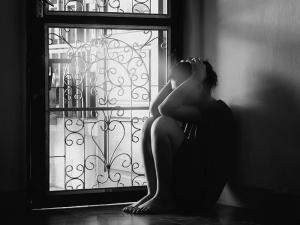
By Sophia A. Nelson
The church is facing a serious mental health and wellness crisis in the United States right now. As we end “Mental Health Awareness Month,” following the horrific shootings in Buffalo, New York, and Uvalde Texas, and the gut-wrenching revelations about sex abuse in the Southern Baptist church. I think it’s fair to say that our focus on mental health right now is likely more significant today, to more people, than ever before. And the church is going to need to shift. Quickly.
Why? According to the World Health Organization, COVID-19 has triggered a 25 percent increase in the prevalence of anxiety and depression due to isolation, constraints on people’s ability to work, seek support from loved ones and engage in their communities. Couple that with our day-to-day stresses of increased food and gas prices, inflation, and the emotional stress we all feel regarding the safety of our children and loved ones from random gun violence.
When it comes to protecting our mental health, practicing a regular self-care routine has been proven to reduce stress, eliminate anxiety and depression, lower our risk of illness, and sustain healthy marriages and families.
For many Christians and people of faith, however, we often feel that all we need is hope and a prayer. And all will be well. Both hope and prayers are critical to our faith for sure. But the problems this generation faces are monumentally different from those of our great grandparents or even our parents’ generation. Their world moved slower. There were no devices to distract them from their families, and they lived by a code of basic manners and civility vastly different from our own.
I grew up in the church. My great-grandfather was a southern preacher and he raised my mother and her brothers in the church. My earliest childhood memories are of going to church with my mother and singing hymns. My brother too became an evangelist after serving in the military and getting his graduate degree in ministry. I come from a family of people of faith. As I myself, now in my 50’s, still hold very close to my faith. Yet, after having faced COVID-19 myself, twice (one pre-vaccinations in February 2020, and again with a breakthrough infection in August 2021), I took a long hard look at my life, and realized I needed something much deeper in the selfcare department in addition to my faith, which is my fuel for living.
Growing up in the church, around people of faith is an amazing experience. It is a very precious community of fellowship, food, and families. But it can also be a halting and unforgiving place when it comes to mental health and emotional wellness. Said more simply: practicing healthy selfcare.
The church is going to have to face the facts of the 21st century in which we all live. And that is that we have a serious mental health crisis ongoing with our children, teens and young adults. Suicides and depression are at record levels. Online harassment and bullying is a common occurrence. I have seen it play out in my own family too. Young people, raised in the church to love, be kind, and yet subject to the dark influences of the world around them.
We as people of faith need to step up, remove the veil and start talking about the very essence of what faith is. And to me, “faith without works” is dead as the Bible reminds.
Our faith must be the fuel of our lives. But it must also compel us to honor our most sacred gift from God–and that is our body, our temple. We are all made up of soul, spirit and flesh. And as such we need to honor that part of us that needs rest, respite, peace, connection, compassion and care. We are always going. Doing. Running. Harried and hurried. My battle with Covid-19 coupled with having a sick parent at home on disability for two years almost broke me as the caregiver. We press ourselves to keep pushing. To keep giving. And to keep going long after we have hit our breaking point.
Here are three self-care tips from my new book, “Be the One You Need: 21 Life Lessons I Learned While Taking Care of Everyone but Me,” that we can all put into practice, starting right now to develop healthier self-care routines as men and women of faith, as well as model healthier lives and lifestyles for our children.
- Ask yourself daily what do I want? What do I need? How Am I feeling? By taking a moment to do a self-check, we connect with our own needs, both physical and spiritual needs. If you don’t take care of yourself first, you will have nothing to give to those you love and serve. You cannot pour from an empty cup. Take care of you first. Then tend to others. This is antithetical to church teachings–we make people feel guilty for looking out for their own needs and wellbeing. That needs to change. God made us to be in relationship with him and with other people for sure. But he made us “fearfully and wonderfully” in His image first. Listen to what you need and tend to those needs faithfully.
- Create daily mental and emotional health and wellness boundaries in your life. Just as we bathe daily. Eat daily. Sleep daily. We must tend to our emotional needs daily. That can only come from having a healthy relationship of “awareness” with ourselves and our own needs, traumas, losses, and hopes. We are spirit. At our core. We are fragile beings. We are not designed by our Creator for the daily barrage of anger on social media, negativity in the news, and yes, in the church where we constantly stigmatize mental health issues and tell people to just pray and give it to God. We need more than that because as the word says, “the spirit is willing, but the flesh is weak.” We must guard our hearts. And protect ourselves from negative spirits and people in our lives who dishonor us, mistreat us, or, perhaps, worst of all, neglect us.
- Use Your faith as fuel. Fill up daily. I’ll end where I began. Our faith is at the center of our lives. And we need to feed that faith daily with fellowship, with the word and with connection to the things that build us and lift us up as human beings. Your faith is fuel in your life. But if you do not feed it, and fill up your reserve tanks, you will run out of fuel and you will falter. Faith, like love, is a verb. It is an action word that requires us to act. Talking and praying is not enough. We must be vigilant guardians of the fuel of our lives so that we can shine a light of faith brightly on a dark and broken world around us.













